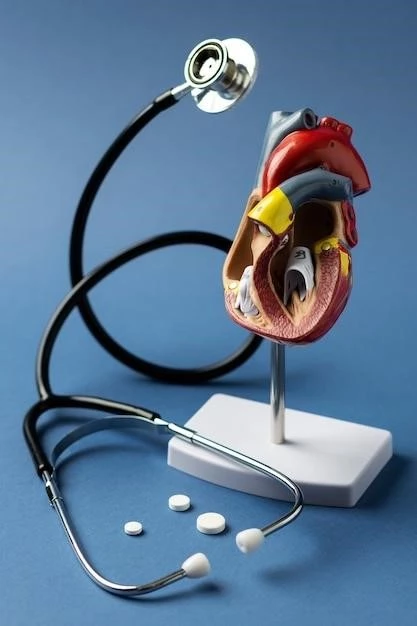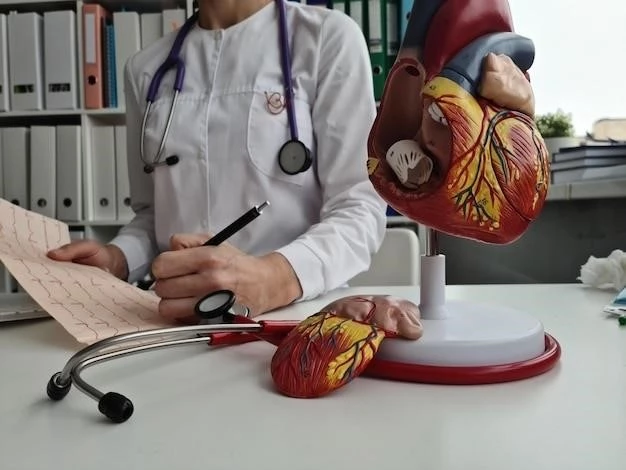Introduction
Mitral atresia is a rare congenital heart defect where the mitral valve is underdeveloped‚ causing improper blood flow within the heart.
Definition of Mitral Atresia
Mitral atresia is a rare congenital heart defect where the mitral valve is either absent or underdeveloped‚ leading to restricted blood flow between the left atrium and ventricle‚ causing various complications.

Causes and Risk Factors
The causes of Mitral Atresia are linked to abnormal heart development during pregnancy‚ resulting in the incomplete formation of the mitral valve.
Mitral atresia is a result of abnormal heart development during pregnancy‚ attributed to issues such as malaligned ventricular or atrial septum‚ atrioventricular canal defects‚ and the excessive growth of endocardial cushion during embryogenesis.
Symptoms and Diagnosis
Infants with Mitral Atresia may exhibit symptoms such as cyanosis‚ rapid breathing‚ poor feeding‚ and sluggish growth
Common Symptoms
Common symptoms of Mitral Atresia include cyanosis‚ rapid breathing‚ poor feeding‚ sluggish growth‚ and may be accompanied by other congenital heart defects such as transposition of the great arteries.
Diagnostic Procedures
Diagnostic procedures for Mitral Atresia include echocardiograms‚ cardiac catheterization‚ MRI scans‚ and genetic testing to confirm the diagnosis and evaluate the extent of the heart defect. These tests help cardiologists assess the structure and function of the heart and determine the most appropriate treatment plan for the individual.
Treatment Options
Treatment of Mitral Atresia may involve surgical interventions such as the Fontan procedure‚ Norwood procedure‚ or medication therapy like prostaglandins to improve blood oxygenation.
Embryological Origins
Mitral atresia is a rare congenital heart defect often attributed to malalignment of the ventricular or atrial septum‚ defects in the atrioventricular canal‚ or excessive growth of the endocardial cushion during fetal development.
Medication Therapy
Medication therapy for Mitral Atresia may include the use of prostaglandins to improve blood oxygenation and circulation‚ aiding in managing the symptoms associated with this congenital heart defect.

Complications
Complications related to Mitral Atresia may include issues such as poor oxygenation‚ underdeveloped ventricles‚ and an increased risk of other congenital heart defects.
Potential Risks
Potential risks associated with Mitral Atresia include poor oxygenation of blood‚ underdeveloped left ventricle‚ and an increased susceptibility to other congenital heart defects that can impact the overall heart function and health of the individual.
Prognosis
The long-term outlook for individuals with Mitral Atresia can vary depending on the severity of associated heart defects and the effectiveness of treatment in improving heart function and oxygenation levels.
Long-Term Outlook
The long-term outlook for individuals with Mitral Atresia can be influenced by the presence of associated heart defects and the effectiveness of treatment in managing symptoms and promoting a healthy heart function over the individual’s lifetime.
Ongoing Research
Advancements in the treatment of Mitral Atresia are continually being researched‚ focusing on improving surgical techniques‚ developing innovative medication therapies‚ and exploring potential gene therapies for better management and outcomes.
Advancements in Treatment
Recent advancements in the treatment of Mitral Atresia focus on refining surgical techniques such as the Fontan procedure and exploring innovative medication therapies to enhance blood oxygenation and improve overall heart function‚ leading to more effective management of this complex congenital heart defect.
Support and Resources
For individuals and families affected by Mitral Atresia‚ seeking support from rare disease organizations can provide valuable information‚ guidance‚ and community understanding of this condition.
Rare Disease Organizations
For individuals and families affected by Mitral Atresia‚ seeking support and resources from rare disease organizations can provide valuable assistance‚ knowledge‚ and a sense of community for navigating this complex condition.
